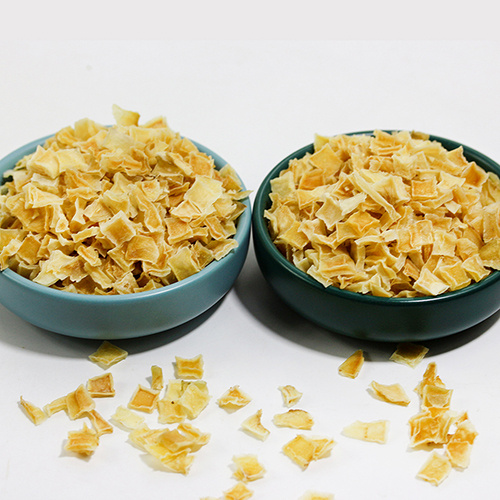Dehydrated potato is an indispensable vegetable in daily life and diet. Potatoes have high nutritional value and low price, and are the favorite food of the masses. Dehydrated potatoes should be selected with large tubers, smooth surface, thin skin, shallow and few bud eyes, white or light yellow flesh, dry matter not less than 21%, and starch content not more than 18%. Rose, Castle Peak, Triumph and other varieties are appropriate.
Dehydrated Potato,Dehydrated Potato Nutrition,Dehydrated Potato Chips,Dehydrated Potato Dices Laian Xinshuyu Food Co., Ltd , https://www.xinshuyufood.com
In summer, the principle of dairy cow raising should be based on prevention of heatstroke, minimizing the adverse effects of high temperatures, and at the same time:
First, to meet the nutritional needs of high-temperature conditions, high-yield cattle through the increase in metabolism, accelerate the cooling to the outside, in order to maintain normal body temperature. Therefore, it is necessary to increase nutrition during the summer. The feed contains more nutritious substances such as energy and crude protein, but it should not be too high. Moreover, there must be a certain amount of crude fiber (17%), if you normally feed 4 kg of concentrate, it can increase to 4.4 kg in summer. Feeding bean cakes usually accounts for 20% of the mix and it can increase to 25% in the summer.
Second, choose good palatability, high nutritional value feed. Such as carrots, alfalfa, high quality hay, wax gourd, pumpkin, melon skin, polymer grass and so on.
Third, extend the feeding time, increase the number of feeding. In the summer, at noon, the temperature inside the house is lower than the house temperature. In order to protect the cattle body from direct sunlight, the trough is placed at 12 o'clock, which can increase the appetite of the cows and increase the feeding time. For high-yielding cattle, the rate can be changed from 3 times to 4 times. Feeding at a time and feeding once at night will have better milking effect.
Fourth, give enough water. In summer, cows drink about 100 kilograms a day. They usually use free drinking water to keep the water clean and cool. Conditional cattle farms can properly drink green bean tea or salt bran soup (50 kg water, add salt 50 grams, bran 1-1.5 kg, 3 times a day) to increase the appetite of the cows, prevent cooling, effective control of milk production The amount of decline.
Fifth, prevention is the main reason to reduce the disease. Preventing mastitis, metritis, foot rot, food poisoning is the key to improving summer milk production, and the following measures are recommended:
From May, soaking the nipples with 1-3% sodium hypochlorite solution; 15 days after the cows, examine the genitals, find problems and timely treatment; wash hooves twice with water twice a month, and apply 10-20% sodium sulfate. Solution.
Sixth, reduce the humidity, increase the cooling and cooling measures. The relative humidity in the barn should be controlled below 80%. Doors and windows of cowsheds are often opened to provide ventilation and ventilation. In case of conditions, ceiling fans may be installed to accelerate the removal of humidity.
Seventh, keep the body of cows and cows clean. The cowshed should be cleaned and disinfected regularly so as not to hinder the health of the cattle and seriously affect the health of the milk. The cow body should be brushed frequently to facilitate heat dissipation. In the summer, more mosquitoes and flies can use 1 - 1.5% trichlorfon to spray the barn and its environment.

How to raise cows in summer
The suitable temperature for cows is 6-24°C (the most suitable temperature is 8-16°C). When the outside temperature exceeds 30°C, the intake of cows will decrease, the body weight will decrease, and the milk yield may be reduced by 25-50%. At the same time, due to the increase in temperature, the conception rate has also dropped significantly.